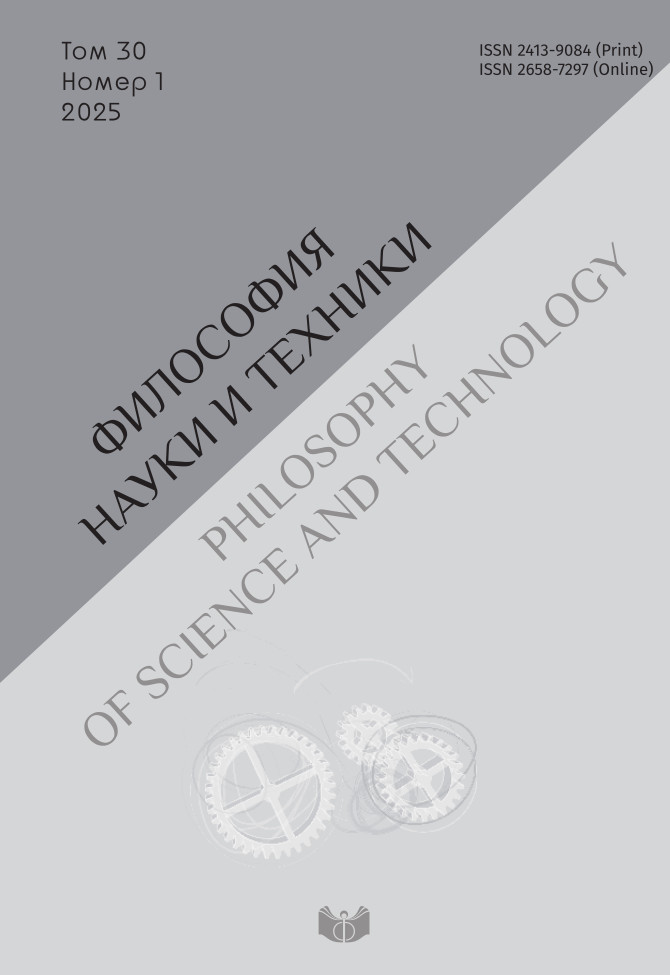Cognition in the context of self-development methodology
DOI:
https://doi.org/10.21146/2413-9084-2025-30-1-82-96Keywords:
self-developing subject, knowing, model of the world, purposeful activity, environment, feedbackAbstract
Within the framework of the binary methodology (body – mind), the fundamental limitations of knowing and the incompleteness of possible cognition is noted. It is proposed to expand the conceptual frame of the analysis by adding the category “environment” as an initial meta-category. This provides an opportunity to analyze events occurring in the world using ternary optics: external world – subject – internal world. In this case, we can talk about the quantum nature of the proposed approach, due to the fact that it potentially contains the possibility of a superposition of two positions of the subject: as a part of the external world and as a bearer of the internal world. The transition from one of the positions, or their sequence, to a simultaneous superposition of positions becomes possible as a result of the self-development of the subject, which becomes a distinctive feature of the proposed methodology. Knowing is considered as an activity to acquire new knowledge; this knowledge contributes to the functioning of the subject in a changing world. In a broader context, knowing is an operationally closed mental activity that is part of the subject’s activity, determined by his existential tasks arising in a changing environment. Accordingly, there are three types of knowing tools. The mental instrument is the knowledge system of the subject of knowing. The purposeful activity of the subject, aimed at solving his life problems, within the framework of which it is assumed to set goals and organize the process of cognition, is a sociocultural tool of knowing. The role of an existential tool for knowing of a self-developing subject is the process of being, which involves the application and correction of a knowledge system. The path of knowing is associated with going beyond the subject’s existing knowledge and involves testing new knowledge in the process of life, when the environment becomes part of the knowing tool as one of the components of feedback. Such an understanding does not exclude the incompleteness and subjectivity of knowledge, but the possibility of self-development of the subject appears, which allows one to overcome the limitations of knowing within the boundaries of the subject’s life world.











